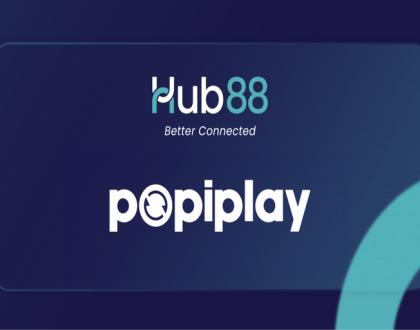Peer to Peer – The Social Aspect of iGaming

Many online gaming platforms now offer Peer to Peer features that allow players to interact and compete with one another in real-time. This social aspect of iGaming has revolutionized the way people engage with online games, creating a more immersive and dynamic playing experience. Players can now challenge their friends or strangers from around the world, forming communities and rivalries within the gaming space.
With this Peer to Peer interaction, players can communicate through chat features, share tips and strategies, and even form alliances to achieve common goals. However, it’s important for players to be cautious of potential risks such as cyberbullying, scams, and exposure to inappropriate content. Despite these dangers, Peer to Peer gaming can greatly enhance the social aspect of iGaming, bringing people together through a shared passion for gaming.
The Evolution of iGaming
From Single Player to Multiplayer Formats
While iGaming initially began with single-player formats, the industry has significantly evolved to accommodate multiplayer formats, allowing players to interact and compete with each other in real time. This shift from solitary gameplay to social interaction has transformed the iGaming experience, creating a sense of community and engagement among players.
Technological Advancements Fueling Social Interaction
The advancement of technology has played a pivotal role in fostering social interaction in iGaming. Single-player games have given way to multiplayer platforms that enable players to communicate, collaborate, and compete with each other in virtual settings. Connected through the internet, players can engage in real-time interactions, enhancing the overall gaming experience.
Single player games have now evolved into sophisticated multiplayer platforms, allowing players to form alliances, chat with each other, and participate in tournaments. This level of interactivity has not only made iGaming more engaging and immersive but has also fostered a sense of camaraderie among players from around the world.
The Importance of Social Connectivity in iGaming
Enhancing User Experience through Community
One of the key aspects that sets iGaming apart from traditional gaming is the emphasis on social connectivity. By incorporating social features such as chat functions, multiplayer modes, and virtual communities, iGaming platforms provide players with a sense of belonging and connection to others who share similar interests. This not only enhances the overall user experience but also encourages players to stay engaged and invested in the game.
The Psychology Behind Social Gaming Behaviours
Community is at the heart of iGaming, influencing the way players interact with each other and the game itself. Research has shown that social interactions in gaming can trigger various psychological responses, such as a sense of achievement, competition, cooperation, and even friendship. Understanding these dynamics is crucial for game developers and operators in order to optimize player engagement and maximize player retention.
Understanding the psychology behind social gaming behaviours can help iGaming platforms create a more immersive and rewarding gaming experience for their players. By fostering a sense of community and social connectivity, iGaming platforms can encourage healthy competition, teamwork, and a sense of belonging among players, ultimately leading to a more enjoyable and satisfying gaming experience for all.
Peer-to-Peer Interaction Mechanics
To fully understand the social aspect of iGaming, we must probe into the mechanics that drive peer-to-peer interactions within these platforms. Players engage with each other via various communication tools, fostering connections and forming communities that enhance the overall gaming experience.
Communication Tools in iGaming Platforms
Interaction in iGaming platforms is facilitated through a range of communication tools such as text chat, voice chat, and even video chat. These tools enable players to strategize, coordinate, and socialize in real-time, creating a dynamic and engaging environment. Players can share tips, offer support, or engage in friendly banter, strengthening bonds and building camaraderie.
Cooperative vs Competitive Play
Platforms often offer a mix of cooperative and competitive gameplay modes, catering to different player preferences. Cooperative play emphasizes teamwork, collaboration, and mutual success, encouraging players to work together towards a common goal. On the other hand, competitive play pits players against each other in intense matchups that test skill, strategy, and resilience.
This balance between cooperative and competitive play adds depth and variety to the gaming experience, allowing players to choose their preferred style of interaction. Whether collaborating with friends to overcome challenges or competing for glory and rewards, iGaming platforms offer a rich social landscape where players can forge meaningful connections and challenge themselves in different ways.
Building iGaming Communities
Despite the competitive nature of iGaming, community building is an vital aspect of creating a thriving environment for players. Building strong iGaming communities involves fostering connections, encouraging interaction, and creating spaces where players can share their experiences, strategies, and knowledge with one another. By promoting a sense of belonging and camaraderie, iGaming communities can enhance the overall gaming experience and keep players engaged for the long term.
Role of Social Media and Forums in iGaming
The role of social media and forums in iGaming cannot be understated. These platforms provide players with a space to connect, engage, and share their passion for gaming with like-minded individuals. Social media channels such as Facebook, Twitter, and Instagram allow players to stay updated on the latest news, events, and promotions in the iGaming industry. Forums, on the other hand, offer a more in-depth and interactive community experience where players can discuss strategies, seek advice, and form alliances.
Creating Inclusive and Sustainable Online Environments
On the path to building iGaming communities, creating inclusive and sustainable online environments is key. It involves establishing clear guidelines for behavior, fostering a culture of respect and diversity, and implementing measures to prevent toxicity and harassment. By promoting inclusivity and sustainability, iGaming communities can ensure that all players feel welcome and valued, leading to a more positive and enjoyable gaming experience for everyone.
Inclusive iGaming communities prioritize creating safe and welcoming spaces for players of all backgrounds. By actively promoting diversity and inclusion, these communities can attract a wider range of players and foster a sense of unity among members. Additionally, promoting sustainability in iGaming communities involves implementing practices that ensure the long-term health and growth of the community, such as moderation strategies, regular events, and feedback mechanisms.
Monetization and Social Dynamics
Many online games today utilize various monetization strategies to generate revenue and create a thriving ecosystem. These strategies often include in-game purchases, reward systems, and other mechanisms that enhance the player experience while also driving financial gains for the game developers. The intersection of monetization and social dynamics in iGaming is a critical aspect that shapes player interactions and overall community engagement.
The Impact of In-game Purchases on Social Structures
In-game purchases have become a common feature in modern iGaming, allowing players to enhance their gameplay experience by buying virtual goods, items, or currency. While these purchases can provide tangible benefits in the game, they also introduce a layer of social complexity. Players who invest in in-game purchases may gain advantages over those who do not, potentially creating disparities and hierarchies within the gaming community. This dynamic can influence social structures, as players with more resources may wield greater influence and power in social interactions.
Reward Systems and Their Effect on Player Interaction
Their reward systems are designed to incentivize player engagement and foster a sense of achievement and progression. By offering rewards such as experience points, virtual currency, or exclusive items, game developers can motivate players to continue playing and interacting with the game. These reward systems not only enhance the gameplay experience but also influence player interaction dynamics. Players may collaborate or compete with each other to earn rewards, leading to new social dynamics and relationships within the gaming community.
Systems that reward players for their achievements can engender a sense of competitiveness and camaraderie among players. However, these systems can also create tension and rivalry, especially in multiplayer games where players vie for limited rewards or recognition. It is necessary for game developers to carefully balance reward systems to promote healthy player interactions and prevent negative behaviors such as exploitation or toxicity.
Challenges and Considerations in Social iGaming
Handling Toxicity and Cyberbullying
All online platforms, including iGaming, face the challenge of toxicity and cyberbullying. Toxic behavior in online gaming can range from simple trash talk to more severe forms of harassment and abuse. It can have a detrimental impact on the player experience and can drive individuals away from the platform. Cyberbullying is a growing concern, especially among younger players, and can lead to long-lasting emotional and psychological effects. Developers must implement robust reporting and moderation systems to combat toxicity and cyberbullying effectively.
Balancing Engagement with Digital Wellbeing
In the context of social iGaming, balancing engagement with digital wellbeing is crucial. Developers need to consider the impact of prolonged gaming sessions on players’ physical and mental health. It’s vital to encourage healthy gaming habits and provide tools that promote moderation and self-regulation. Features such as time limits, reminders to take breaks, and wellness tips can help players stay mindful of their gaming habits and prioritize their digital wellbeing.
Engagement in social iGaming should not come at the expense of players’ overall well-being. By striking a balance between engagement and digital wellbeing, developers can create a more sustainable and responsible gaming environment for their players.
Future Trends in Social iGaming
Predicting the Next Wave of Social Features
The landscape of social iGaming is constantly evolving, driven by advancements in technology and changing consumer behaviors. One trend to keep an eye on is the integration of social media platforms directly into iGaming experiences, allowing players to connect with friends and followers while they play. This seamless integration will not only enhance the social aspect of iGaming but also open up new possibilities for competition, collaboration, and community building. As the popularity of social gaming continues to rise, we can expect to see more personalized experiences, interactive challenges, and real-time communication features in the next wave of social iGaming.
The Role of Virtual Reality and Augmented Reality in Social Gaming
The use of virtual reality (VR) and augmented reality (AR) technologies is poised to revolutionize social gaming in the near future. VR and AR have the potential to transport players to immersive virtual worlds where they can interact with other users in real time, creating a truly social gaming experience like never before. These technologies will not only enhance the sense of presence and immersion but also provide new opportunities for social interactions, such as virtual meetups, live events, and shared experiences. The integration of VR and AR in social gaming will blur the lines between the virtual and physical worlds, paving the way for a more engaging and interactive gaming experience.
Plus, the advancements in VR and AR will also pose challenges in terms of data privacy, security, and ethical considerations. It will be crucial for developers and operators to address these issues proactively to ensure a safe and positive gaming environment for all players.
Summing up
In the fast-paced world of iGaming, the social aspect provided by peer-to-peer interactions adds a unique dimension to the overall experience. By allowing players to compete against or collaborate with each other, iGaming platforms create a sense of community and camaraderie that enhances gameplay and fosters relationships. This social element not only increases engagement and retention among players but also adds a layer of excitement and fun to the gaming experience.
As technology continues to evolve and shape the landscape of iGaming, the social aspect of peer-to-peer interactions will play an increasingly important role in the industry. By leveraging the power of connectivity and social networks, iGaming platforms can offer players a more immersive and engaging experience, ultimately driving growth and success in the competitive market. Embracing the social aspect of peer-to-peer interactions is not just a trend—it is a vital component of the future of iGaming.
FAQ's
What are Peer to Peer features in iGaming?
Peer to Peer features in iGaming allow players to interact directly with each other in real-time, enabling competitions, alliances, and social connections within online games.
How do Peer to Peer interactions enhance the gaming experience?
Peer to Peer interactions enhance the gaming experience by fostering community, enabling real-time communication, and encouraging collaborative gameplay.
What risks are associated with Peer to Peer gaming?
Risks associated with Peer to Peer gaming include cyberbullying, exposure to inappropriate content, and potential scams, which players should be cautious of while engaging online.
What technological advancements support social interaction in iGaming?
Technological advancements such as multiplayer platforms, communication tools like chat and voice features, and real-time connectivity contribute to enhanced social interaction in iGaming.
How can iGaming communities promote inclusivity and sustainability?
iGaming communities promote inclusivity and sustainability by fostering respectful environments, implementing moderation strategies, and encouraging diverse participation.
Michael
With over 20 years experience in web design, SEO and website promotion I always give you an expert advice in regard to any issues related to your Site Design, SEO, Internet Marketing, Promotion, Backlinks, Site Content. In order to help you find out what is missing or can be improved and get higher rankings in Google and more traffic.
Recommended Posts

Hub88 & Popiplay Enhance iGaming Content
July 1, 2024

Werner Becher Appointed CEO of Kambi Group
July 1, 2024

MasterCard Payment Solutions for Online Casinos
July 1, 2024




